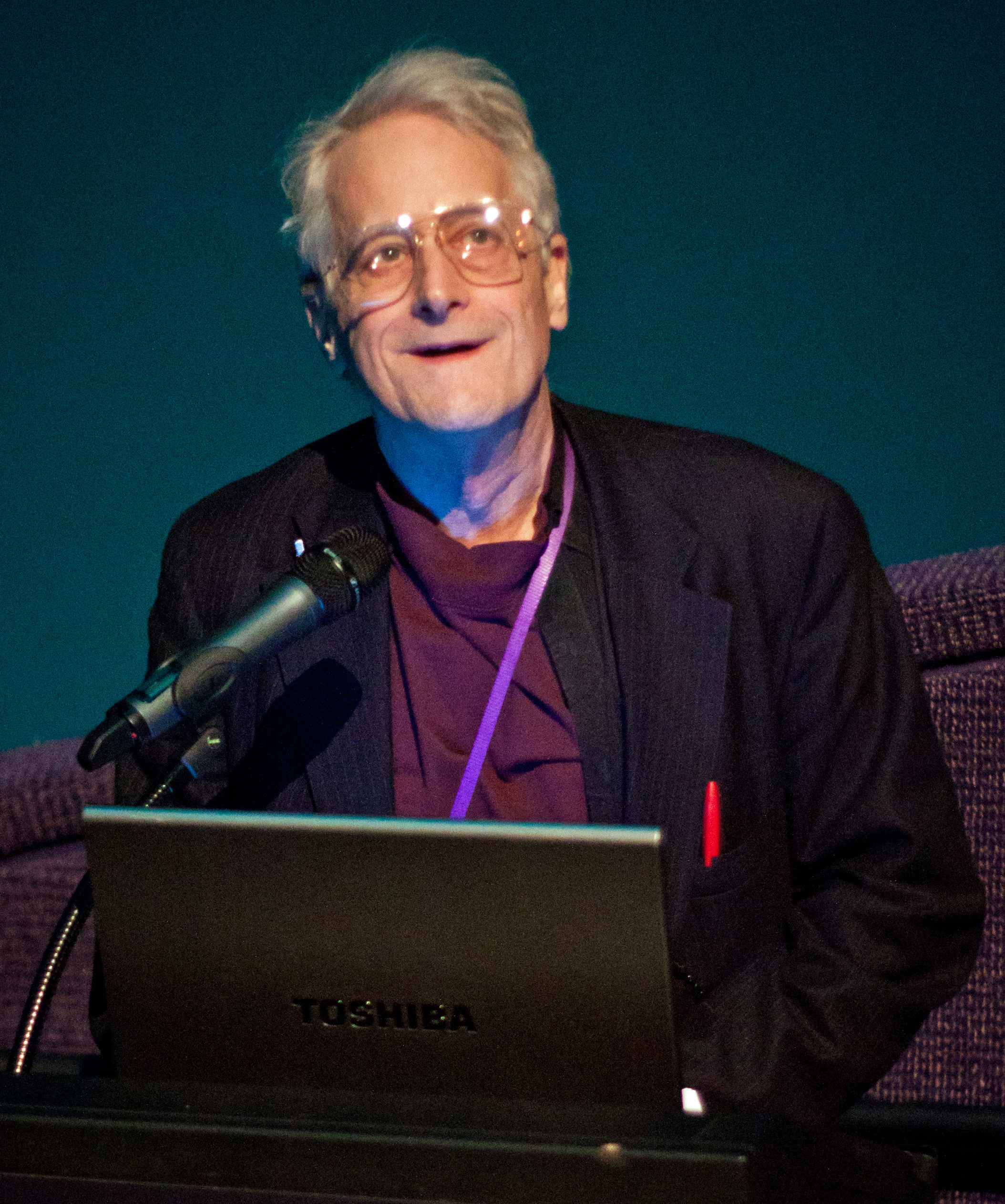“Most people are fools, most authority is malignant, God does not exist, and everything is wrong.”
quoted by Gary Wolf in "The Curse of Xanadu" http://www.wired.com/wired/archive/3.06/xanadu_pr.html in Wired (6/1995)
Theodor Holm Nelson, ou simplesmente Ted Nelson, é um filósofo e sociólogo estadunidense nascido em 1937. Pioneiro da Tecnologia da Informação, inventou os termos hipertexto e hipermídia, em 1963, e os publicou em livro, no ano de 1965. Também inventou os termos transclusão, transcopyright e virtualidade.
O grande mote do trabalho de Ted Nelson tem sido tornar os computadores acessíveis para pessoas comuns. Seu lema é:
Uma interface para um usuário deve ser tão simples que um iniciante, numa emergência, deve entendê-la em 10 segundos.
Wikipedia

“Most people are fools, most authority is malignant, God does not exist, and everything is wrong.”
quoted by Gary Wolf in "The Curse of Xanadu" http://www.wired.com/wired/archive/3.06/xanadu_pr.html in Wired (6/1995)
“After all, dumbing down Xanadu sure worked well for Tim Berners-Lee!”
Article on Nelson's website, "Indirect Documents at Last!" http://www.hyperland.com/trollout.txt (2005)
“If computers are the wave of the future, displays are the surfboards.”
Dream Machines, p 22.
Computer Lib/Dream Machines (1974, rev. 1987)
Dream Machines
Computer Lib/Dream Machines (1974, rev. 1987)
“Everything is deeply intertwingled.”
Computer Lib p. 42 / Dream Machines p.45
Computer Lib/Dream Machines (1974, rev. 1987)
Ted Nelson motto http://sydney.edu.au/news/84.html?newsstoryid=6681
BBC News Interview, "Visionary lays into the web" http://news.bbc.co.uk/1/hi/sci/tech/1581891.stm (2001)
Dream Machines
Computer Lib/Dream Machines (1974, rev. 1987)
Dream Machines
Computer Lib/Dream Machines (1974, rev. 1987)
“You can and must understand computers now!”
Slogan. (The insistence that ordinary people need to understand computers is remarkable for its era: the first personal computers were not available until 1975.)
Computer Lib/Dream Machines (1974, rev. 1987)
Quoted in In Venting, a Computer Visionary Educates http://www.nytimes.com/2009/01/11/business/11stream.html?_r=1 by John Markoff, published January 10, 2009 in the New York Times, page BU4 of the New York edition.
Computer Lib
Computer Lib/Dream Machines (1974, rev. 1987)
“We should not impose regularity where it does not exist.”
Ted Nelson on Zigzag data structures http://www.youtube.com/watch?feature=player_detailpage&v=WEj9vqVvHPc#t=188s (6 September, 2008
Computer Lib
Computer Lib/Dream Machines (1974, rev. 1987)
Ted Nelson's Home Page http://xanadu.com.au/ted/XU/XuPageKeio.html (November 17, 1998)
http://www.raphkoster.com/2011/10/13/gdco2011-its-all-games-now/